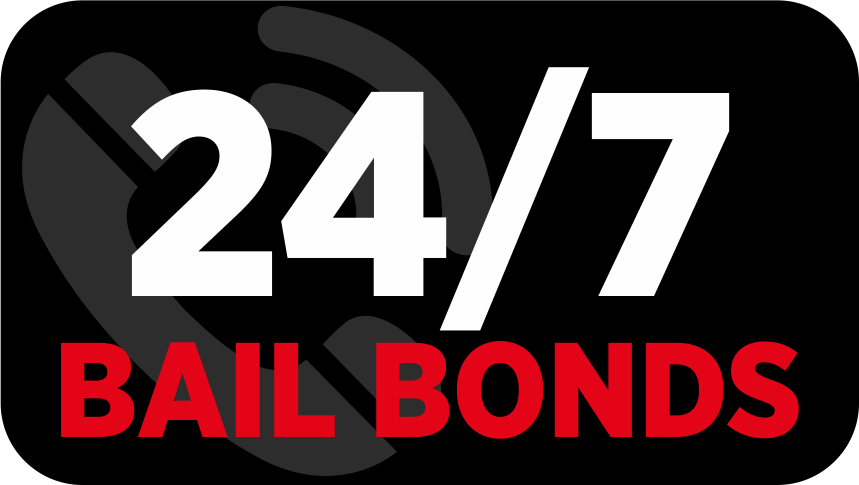Bail Bond Company Canton Ohio: Trusted Citizen Bail Bondsmen for Quick Assistance
Bail Bond Company Canton Ohio: Trusted Citizen Bail Bondsmen for Quick Assistance
Blog Article
Understanding Exactly How a Bail Bond Functions and Its Influence On the Lawful Process
The idea of a bail bond works as an essential device within the lawful process, enabling defendants a path to safeguard their launch while awaiting trial. By understanding the complexities of this procedure, consisting of the duties of bondsman and the financial implications, one can value how access to bail substantially influences legal end results. Variations in bail price raising pressing inquiries regarding systemic inequalities and their more comprehensive social impact. What effects develop when the ability to pay determines one's flexibility? Exploring these measurements reveals a complex interaction deserving of further exam.
What Is a Bail Bond?
A bail bond is a legally binding arrangement that functions as an economic guarantee for the launch of an accused individual from prison while they await trial. This device enables offenders to secure their momentary freedom by supplying a financial assurance to the court that they will certainly appear for all set up hearings - bail bonds canton ohio. The bond amount is normally established by a judge based on elements such as the extent of the offense, the defendant's criminal history, and the danger of trip
bail bonds can be uploaded by the defendant or via a Bail bondsman, who charges a non-refundable fee, normally a percent of the total bail amount, in exchange for presuming the financial risk. If the offender stops working to show up in court, the bail bond comes to be forfeited, and the court may provide a warrant for the person's arrest. In such instances, the bail bondsman is frequently tasked with nailing the offender and situating to minimize their economic loss.
Fundamentally, bail bonds offer a crucial role in the judicial system by balancing the assumption of virtue with the demand to ensure court appearances, thus helping with the accused's right to prepare for their case beyond imprisonment.

The bail Process Discussed
Navigating the bail process can commonly really feel frustrating for those strange with the lawful system. The bail procedure commonly starts after an individual is apprehended and booked. At this moment, a judge will identify the bail amount, which is intended to guarantee the defendant's appearance at future court dates. Factors affecting this choice consist of the nature of the supposed criminal offense, the accused's criminal history, and their ties to the neighborhood.
Once the bail quantity is set, the defendant or their rep can pick to pay the total in cash money, organize for a bail bond, or request a Bail hearing for a possible decrease. If a bail bond is chosen, a certified bondsman generally charges a non-refundable fee, generally around 10% of the total bail quantity, in exchange for assuring the court that the accused will show up for all needed proceedings.
Upon repayment, the bail bondsman will certainly post the bail with the court, safeguarding the accused's release. It is crucial for the accused to stick to all court days; failing to do so can cause the forfeiture of the bail and added legal effects.
Types of bail Bonds
bail bonds can be found in different types, each designed to satisfy various requirements and circumstances within the legal structure. The most usual type is the guaranty bond, where a bondsman supplies the complete bail amount for a charge, generally 10-15% of the overall bail. This setup permits defendants to protect their launch without needing to pay the entire bail upfront.
An additional type is the money bond, which calls for the defendant or a third event to pay the full bail amount in cash money. This option is typically preferred for its simplicity, as the money is returned upon the offender's court look, see it here minus any management costs.
Residential property bonds include making use of real estate as collateral for bail. The residential property has to be valued at or above the bail amount, and if the accused stops working to show up in court, the court might seize the home.
Last but not least, there are government bonds, designed specifically for federal instances, which often lug various terms and conditions. Understanding these numerous sorts of bail bonds is critical for defendants and their family members as they browse the complexities of the lawful system. Each kind offers a distinctive function, making sure a variety of alternatives for securing release from protection.

Duty of bail Bonds in Lawful Outcomes
Typically forgotten, the role of bail bonds substantially affects lawful end results for defendants. bail functions as a system to make sure that people waiting for test can remain totally free from incarceration, therefore enabling them to take part better in their protection. The availability of bail bonds enables defendants who may not have the financial means to post bail straight to safeguard their launch, which can lead to more beneficial legal results.
When accuseds are out on bail, they have the possibility to collect proof, seek advice from lawful advise, and prepare their instance without the stress of prison confinement. This enhanced accessibility to resources and support can result in enhanced possibilities of discussing appeal offers or receiving a more lenient sentence. In addition, the capacity to preserve employment and family links while waiting for trial can add to a much more positive perception in court.

Effects for Accuseds and Society
The implications of the bail bond system extend past specific accuseds, affecting society overall. For many offenders, particularly those from lower socioeconomic backgrounds, the lack of ability to manage bail can cause prolonged pretrial apprehension. This scenario usually leads to job loss, disrupted family members dynamics, and increased probability of pleading guilty to lesser costs to secure launch, regardless why not try this out of real regret.
Moreover, the social consequences are significant (stark county bail bonds). A high reliance on bail bonds can bolster inequalities in the justice system, as wealthier individuals can safeguard their flexibility much more conveniently while poorer accuseds continue to be incarcerated. This disparity elevates honest problems regarding the justness of the legal procedure and the wider effects for public count on the justice system
In addition, pretrial detention can intensify criminal behavior, adding to higher relapse prices and enhanced stress on area resources. The bail bond system, as a result, not only affects the prompt situations of offenders but likewise has far-ranging effects on social review stability and public safety and security. Addressing these implications is vital for developing a more fair lawful structure that safeguards both specific rights and the broader rate of interests of society.
Final Thought
In verdict, comprehending the technicians of bail bonds is necessary for navigating the lawful system successfully. The capacity to protect temporary launch from imprisonment with the settlement of a bond substantially influences lawful outcomes for offenders, enabling much better preparation of their defense. Additionally, the ramifications of bail bonds extend past private cases, revealing systemic inequalities that impact neighborhoods and add to more comprehensive social concerns, such as recidivism and financial instability.
The idea of a bail bond serves as an important mechanism within the lawful procedure, permitting defendants a path to secure their launch while awaiting test. By understanding the ins and outs of this process, consisting of the duties of bail bondsmen and the financial ramifications, one can value how accessibility to bail significantly influences lawful end results.bail bonds can be uploaded by the accused or through a Bail bondsman, who bills a non-refundable fee, generally a percent of the total bail amount, in exchange for assuming the economic threat. The most typical type is the surety bond, where a Bail bondsman supplies the complete bail amount for a charge, usually 10-15% of the overall bail. The schedule of bail bonds makes it possible for defendants who might not have the economic ways to upload bail directly to protect their launch, which can lead to much more positive lawful outcomes.
Report this page